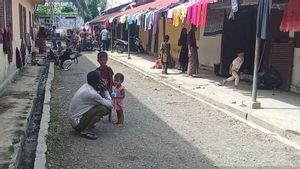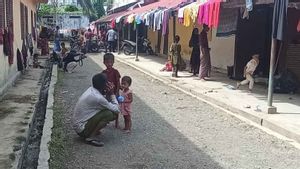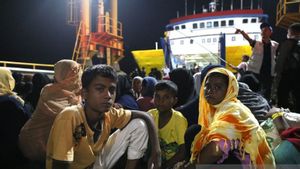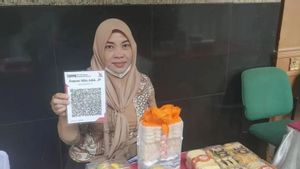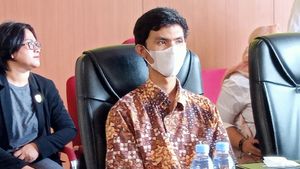JAKARTA - Rohingya refugees do not come to Indonesia to exploit Indonesia or the friendliness of the Indonesian people, on the contrary they are tough people who if made will contribute greatly to the community, said UNHCR.
"They came because of the despair caused by the increasing number of murder cases, kidnappings and dangerous situations where they lived before," said UNHCR Indonesia spokesman Mitra Salima quoting Antara.
According to Mitra, Rohingya refugees already know and are always reminded by UNHCR that they are guests in Indonesia so they must follow the laws and customs that apply in Indonesia.
All countries, including Indonesia, recognize that seeking asylum is a human right and the state is obliged to provide protection to refugees, including Rohingya refugees, Mitra said.
In Indonesia, continued Mitra, the 1945 Constitution and Presidential Regulation Number 125 of 2016 regulate the acceptance and handling of domestic refugees.
Mitra juga menjelaskan keberadaan UNHCR di Indonesia adalah membantu pemerintah menangani masalah pengungsi dan membantu mencari solusi bagi pengungsi.
"As long as refugees stay in Indonesia for a while until a long-term solution is found for them, UNHCR coordinates with the authorities and cooperates with partners, donors and other stakeholders, to ensure that the refugees' needs are met and living a dignified life," said Mitra.
Mitra emphasized that Rohingya refugees are actually tough people who, if given the opportunity, would definitely want to contribute to the people they lived in at that time.
"UNHCR and partners are trying to support the local community that accommodates Rohingya refugees through community strengthening activities. We also involve the local community in dealing with refugees", said Mitra.
He revealed that more than 70 percent of Rohingya refugees who landed in Indonesia over the past month were women and children.
According to UNHCR data, the majority of Rohingya refugees escaped and were given refugee status of more than 960,000 people in Bangladesh, 107,000 people in Malaysia and 22,000 people in India.
SEE ALSO:
2022 is one of the deadliest years in the history of the maritime movement of Rohingya refugees in Southeast Asia, with 348 people, including children, dead or tragically missing.
For decades, Rohingya people have experienced extreme suffering in Myanmar.
They do not get citizenship status and are not allowed to access health services, education and job opportunities. Their lives are limited in camps and villages as well as, in addition to being the target of extreme violence.
Mitra emphasized that Rohingya refugees did not really want to leave Myanmar.
"Most Rohingya refugees admit to UNHCR that they hope to return to Myanmar if conditions allow," concluded Mitra.
The English, Chinese, Japanese, Arabic, and French versions are automatically generated by the AI. So there may still be inaccuracies in translating, please always see Indonesian as our main language. (system supported by DigitalSiber.id)



